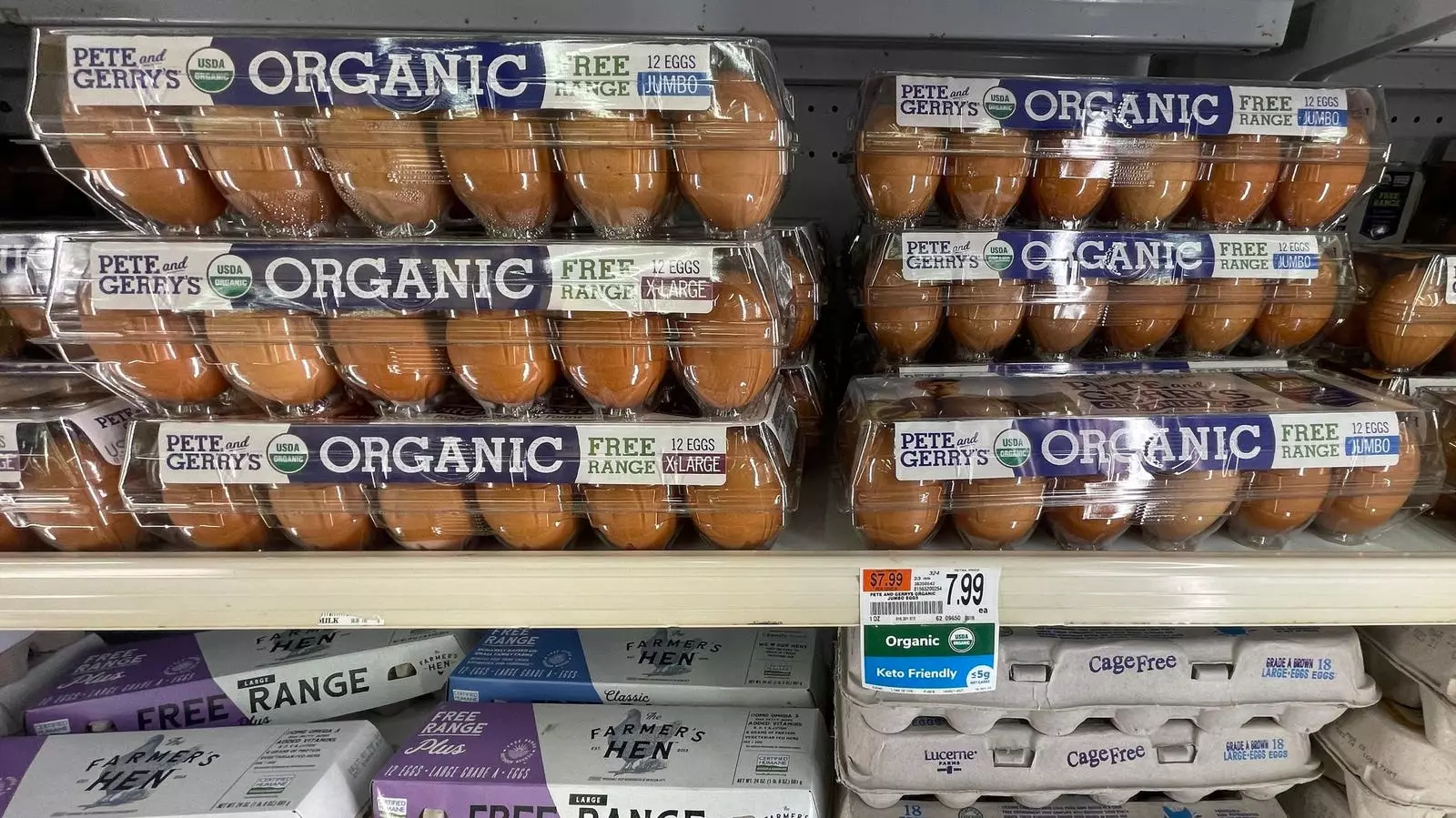For most people, eggs have long been the unsung heroes of the kitchen. They’re convenient, versatile, and often taken for granted, whether they are being scrambled for breakfast, whisked into a cake batter, or simply enjoyed in an egg salad. However, recent events have turned these once-ordinary items into crucial commodities of economic importance. With prices skyrocketing, hitting $8 per carton, and thefts occurring on a large scale, eggs have transitioned from a staple to a symbol of larger vulnerabilities in our food supply chain. This worrying trend signals a pivotal moment in how we view food, as the standard grocery list increasingly resembles a financial asset portfolio.
The recent heist of 100,000 organic eggs from Pete & Gerry’s Organic Eggs in Pennsylvania serves as a striking illustration. This theft, characterized by its audacity and scale, reflects a growing national crisis surrounding food security. The incident was not merely an opportunistic crime; it speaks volumes about economic pressures affecting consumers, farmers, and distributors alike. According to a report by CargoNet, cargo thefts across North America surged by 27%, with food staples featuring prominently among the targets. Such trends raise unsettling questions: Are everyday foods like eggs becoming so valuable that they are now worthy of theft?
The soaring prices of eggs can be attributed to multiple factors, notably avian flu outbreaks and persistent supply chain disruptions. The inflationary environment exacerbates these challenges, leaving consumers to face higher prices and fewer options. These aren’t isolated incidents. The statistical data provided by CargoNet reveals a chilling pattern: over 3,600 cargo thefts occurred in 2024 alone, focusing heavily on consumables. This upward trajectory in food-related theft serves as a stark reminder of our increasingly fragile food system, which has become susceptible to external pressures.
The implications of these changes extend beyond the realm of breakfast. Eggs are just one example of how commodities once considered basic necessities are being viewed through the lens of economic value. Farmers and consumers alike must grapple with the reality that food items are becoming valuable enough to steal en masse. This inevitably makes us question the overall permanency and sustainability of our food systems. As these staples become entangled in issues of theft and value, the everyday act of grocery shopping feels more precarious.
While the theft of such a significant quantity of eggs may seem unprecedented, it is not an isolated incident in a world where food theft has a storied history. Reflecting on notorious heists demonstrates that this worrying trend is part of a broader, unsettling pattern.
For example, The Great Canadian Maple Syrup Heist in 2011 saw the theft of six million pounds of syrup valued at an astounding $18 million. In 2013, Germany experienced the Nutella Heist, where 11,000 pounds of the beloved hazelnut spread was stolen, underscoring the high value placed on gourmet food items. California’s Nut Crimewave, targeting almonds and other high-value nuts, highlighted the systemic vulnerabilities in food transport security. These examples indicate a troubling trend where food security is compromised, and everyday items are increasingly treated as high-stakes economic investments.
What can be done in light of such alarming developments? The theft of organic eggs is not simply a bizarre crime; it draws attention to the pressing need for a reevaluation of our food systems. It raises questions about how we protect vital commodities that now occupy a dual role as a staple and an economic asset. For producers like Pete & Gerry’s, the ramifications of this crime are evident—an immediate inventory loss and a lingering sense of vulnerability in their supply chain.
As these thefts illuminate gaps in food distribution and security, consumers are left to ponder the implications for their next trip to the grocery store. Will the rising prices continue unabated, and will staples like eggs, once a reliable component of the modern kitchen, become symbols of instability in the food market? This ongoing dialogue reflects broader issues regarding inflation, labor shortages, and an overall volatile food landscape.
The ramifications extend beyond the financial aspect. The fragility of our food system, as exemplified by the theft of essential items seemingly as innocuous as eggs, emphasizes a growing need for changes in policy and better security measures surrounding food distribution. As consumers face rising prices and diminishing trust in their food sources, it becomes apparent that we can no longer take the accessibility of our staple foods for granted.
The growing trend of food theft is a clarion call for all of us to remain vigilant and reflective about our food systems. If the basic items are no longer secure, we must work together to discover solutions for fostering food security that ensures both the safety of producers and the affordability for consumers, protecting the sanctity of something as quintessential as breakfast.

